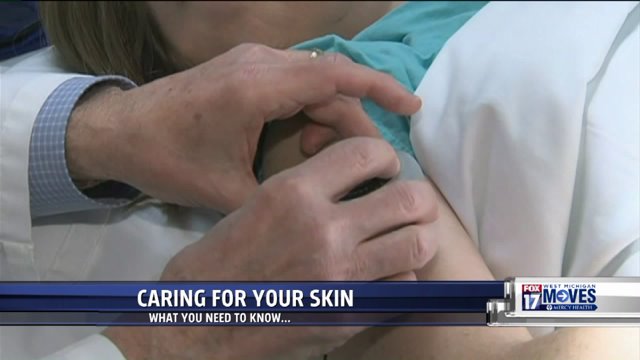The sun's rays feel good, but they're no friend to your skin. Though you won't see it right away, they give you wrinkles and age spots, and they're the top cause of skin cancer, including its most dangerous form, Melanoma. As the end of summer quickly approaches and thoughts turn from spending days at the beach, you might think that being mindful of the sun's impact on your skin becomes less important. Not so, says Dr. Jill Onesti, MD, surgical oncologist at the Mercy Health Lacks Cancer Center.
There are about 75,000 patients diagnosed with melanoma each year. Melanoma can affect people regardless of age or race, but is more common in people with fair skin, red or blond hair, and blue eyes. A family history of melanoma or people with a large number of moles have increased risk. Certainly a history of repeated sun exposure, tanning beds, or blistering sunburns in childhood increases the likelihood of cancer. Regardless, melanoma can develop in anyone and careful skin exams can help identify melanoma at an earlier stage.
A simple tool to evaluate a new skin lesion is to remember the ABCDE's of melanoma. These indicate a higher concern for cancer: A for asymmetry: if a lesion does not look the same on both sides, B for irregular borders that are not smooth and round, C for color – darker or multiple shades, D for diameter or size greater than the eraser on a pencil, and E for evolution or a lesion that is changing in some way. If you notice one of these findings, you should ask your doctor to evaluate and biopsy the lesion.
Fortunately the majority of melanomas are diagnosed at an early stage and can be treated safely with surgery. This usually involves removing a large portion of the skin and soft tissue at the site of the lesion, and may involve checking your lymph nodes. For more advanced cancers, a combination of chemotherapy and radiation may also be necessary.
There is no such thing as a safe tan. While tanning is part of the body’s process to try to protect your cells, the damage that occurs from UV light exposure can still cause skin cancer. Your best way to prevent melanoma is to stay out of the sun, wear a large hat and sunglasses, and always apply sunscreen with an SPF of 30 or higher.
To learn more, visit http://www.MercyHealthCancerCare.com




